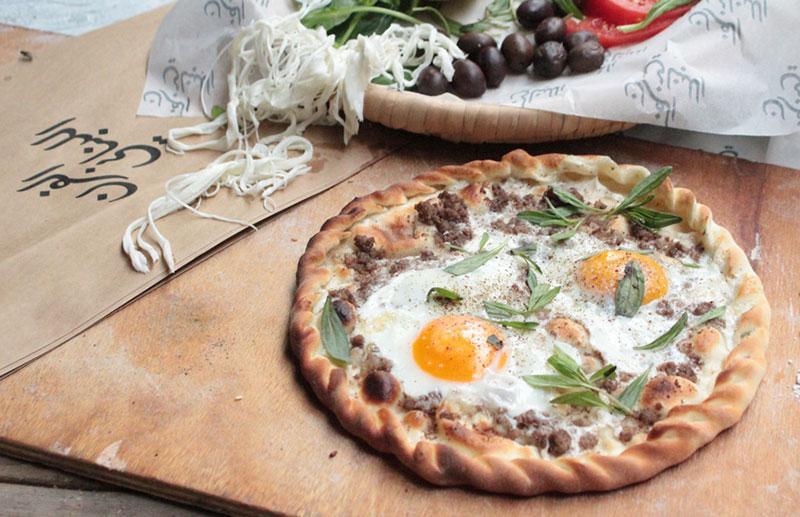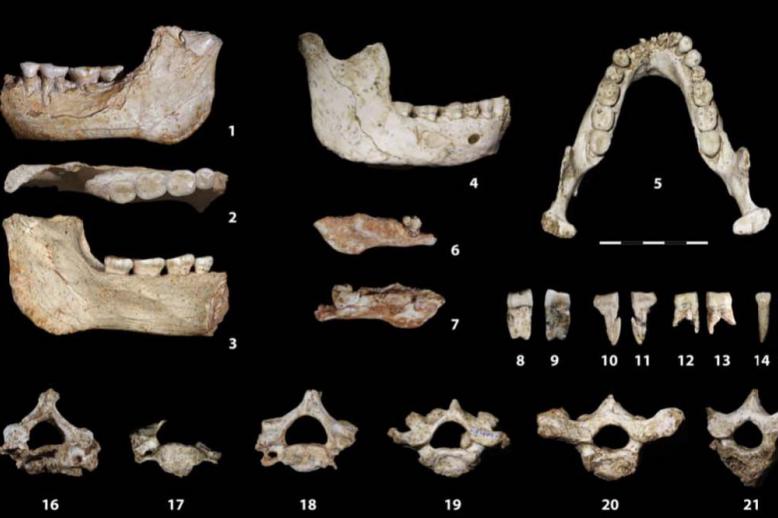Lebanon’s manousheh takes on pizza in London
Nothing beats your mother’s home-cooked food. You’ve grown up with it. It’s made with love and there are many warm memories associated with it.
Lebanese brothers Samer and Bassam Chamoun wanted to share with Londoners a deeply rooted food heritage — manousheh — at their first international brand store, the Lebanese Bakery.
They say they are not competing to have the best manousheh but want to present more variety that is new and authentic to their roots.
The Lebanese Bakery offers a fresh approach to manousheh, a popular Lebanese flatbread usually topped with thyme, cheese or ground meat. Based in Beirut, the Chamouns opened a branch in Covent Garden, London, and said they hope to expand to France, Germany, the Gulf and North America.
“We want to introduce new recipes, not only have three or four items that the manousheh usually has. In Beirut, one type of dough is used normally. We use three types of dough such as whole wheat and multigrain oats, which are used in cereals,” Samer Chamoun said.
Their biggest seller is za’tar on za’tar, which contains tomato spread, thyme flower and fresh thyme. They use seven types of cheese and mix sauces for a unique taste. Although the manousheh is usually enjoyed for breakfast, the bakery offers it all day and with free-range eggs. There is also a delivery and takeaway service.
There are sweet flatbreads with Arabic toppings such as halawa and tahini and Western toppings such as Nutella. The average manousheh has 350-500 calories.
“Flatbread hasn’t been innovated in a while so we want to fill that gap,” Chamoun said. “We are not competing with other manousheh, however, we are rivalling pizza.”
The Chamoun brothers are smart to compete with pizza. Their dough tastes a lot like the pizza from Italian chain restaurant Franco Manca. The Chamouns use the same approach of making the dough fresh on-site. While the dough used in Italy and Lebanon is similar, the toppings are different.
“We want to present the farm-to-table experience. We work with local farmers in Beirut to bring an authentic and organic taste. We want to bring the farms to the city,” Chamoun said.
Born and raised in Beirut, the brothers said they draw inspiration from all corners of the globe to expand the neighbourhood bakery. Alongside his work with the Middle Eastern eatery, Samer Chamoun works as an architect with a studio in Beirut. The restaurateur has also worked for Zaha Hadid Architects, where he honed his design skills.
Bassam Chamoun is a real estate developer behind a number of large commercial and residential projects in Beirut, including the development of local and regional restaurants.
Their design skills are shown in their attention to detail in presenting the toppings on the flatbreads and their packaging. New shapes of the flatbread will be introduced to give each piece its own identity.
Until now, the Lebanese “pizza” has been more or less unheralded in the United Kingdom despite some of the best restaurants in Paris and New York scribbling it on to their menus with marker pens.
Britain, though, has caught on. Looks like pizza has some competition from the Lebanese Bakery dedicated entirely to Beirut’s most popular street-food snack.
Link to Lebanese Bakery’s website: http://thelebanesebakery.com
This article was originally published in The Arab Weekly.







